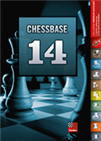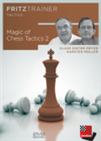Born in the late nineteenth century in St. Petersburg, throughout his life Nabokov resided in England, Germany, France, United States and Switzerland. In addition to writing some of the most respected novels of the twentieth century, he collected butterflies and composed chess problems. His love for detail — a feature of both chess composers and lepidopterists — can be clearly identified in his literary work.
Published in 1930, his third novel, The Luzhin Defense (Zashchita Luzhina in the original Russian), centres the plot around grandmaster Luzhin and his difficulties to distinguish between the real world and the whirlwind of pieces and combinations that inhabited his mind. The author, deliberately, structures the novel as a chess game where the protagonist must find the defence that will free him from the sorrow entailed by this dichotomy.
In the article Nabokov's Playground: The Defense, Yakov Klots mentions some of the linguistic games that Nabokov uses to underline Luzhin's conflict: obsessed, he often arbitrarily confers a chess connotation to polysemantic words. The following excerpt describes his frustration when he is unable to spend time with his fiancée due to the various combinations of visitors that fill his house:
Once the visitors began to come, appearing every evening now in various combinations, Luzhin was unable to be alone with his fiancée for a single moment and his struggle with them, his efforts to penetrate through the thick of them to her, immediately took on a tinge of chess.
The link that Nabokov observed between art and chess is also evident in Luzhin's first encounter with the game that would bewilder him for the rest of his life. It is a violinist, a friend of his father, who introduces him to the world of chess. In reference to the game, the musician states: "Combinations like melodies. You know, I can simply hear the moves". At that moment, the mind of young Luzhin is reshaped inexorably.
 Follow the World Champion and your chess friend next door. Start your success story with ChessBase 14 and enjoy your chess even more! In addition to the ChessBase 14 Program, the Premium Package contains:
Follow the World Champion and your chess friend next door. Start your success story with ChessBase 14 and enjoy your chess even more! In addition to the ChessBase 14 Program, the Premium Package contains:
• Access to the Live-Database (8 million games)*
• Mega Database 2018
• ChessBase Magazine subscription for a full year (6 issues)
• Database-Update-Service through end of 2018
• Full year Premium membership for playchess and for the ChessBase Accounts
• Corr Database 2018
• Endgameturbo 4
Nabokov's "The Luzhin Defense" book cover
The association with music is revisited throughout the book. Here is a description of Luzhin's musings during a game against his arch-rival Turati:
...and immediately a kind of musical tempest overwhelmed the board and Luzhin searched stubbornly in it for the tiny, clear note that he needed in order in his turn to swell it out into a thunderous harmony.
One of the qualities that provoked Luzhin's enchantment with chess was the purity of the game, its abstract character governed by clearly defined rules. It is no surprise, therefore, that Luzhin would prefer to face the chessboard blindfold:
He found therein deep enjoyment: one did not have to deal with visible, audible, palpable pieces whose quaint shape and wooden materiality always disturbed him and always seemed to him but the crude, mortal shell of exquisite, invisible chess forces.
Nabokov's contribution to chess
Luzhin's obsessive nature has an autobiographical undertone. Nabokov, in his autobiography Speak, Memory, published in 1963, comes to lament the enormous amount of time he devoted to the composition of chess problems:
...whatever it was, it belonged to an especially exhilarating order of sensation, and my only quarrel with it today is that the maniacal manipulation of carved figures, or of their mental counterparts, during my most ebullient and prolific years engulfed so much of the time I could have devoted to verbal adventure.
 FM Claus Dieter Meyer has put under the microscope a comprehensive fund of topical and timeless games / fragments. On video Hamburg GM Dr. Karsten Müller has outlined corner points of Meyer's work and created 14 tests plus 10 interactive test sets.
FM Claus Dieter Meyer has put under the microscope a comprehensive fund of topical and timeless games / fragments. On video Hamburg GM Dr. Karsten Müller has outlined corner points of Meyer's work and created 14 tests plus 10 interactive test sets.

The Nabokovs, Vera and Vladimir, playing a friendly game | Photo: Life Magazine
During his first years of voluntary exile, the Russian published some of his problems in the émigré journals Rul' (in Berlin) and Poslednie Novosti (in Paris). According to him, an important distinction should be made between chess problems and chess games. One of his characters, Fyodor Godunov-Cherdyntsev, the protagonist of The Gift (Dar in the original Russian), is at the same time a poet and a composer of chess problems, two activities that the author combined in his life and his work. Nabokov describes like this a stage of Godunov's creative process:
...it immediately became clear that the idea so purely embodied in his brain would demand, here on the board — in order to free it of its thick, carved shell — inconceivable labors, a maximum of mental strain, endless trials and worries, and most of all - that consistent resourcefulness out of which, in the chess sense, truth is constructed.
The article Vladimir Nabokov: More Chess Problems and the Novel — published in 1979 and written by Janet Gezari and W. Wimsatt — emphasizes Nabokov's appreciation of chess problems as opposed to chess games, and mentions the illustrative comparison presented in The Gift:
For him, the construction of a problem differed from playing in about the same way as a verified sonnet does from the polemics of publicists. The making of such a problem began far from the board (as the making of verse begins far from the paper) with the body in a horizontal position on the sofa...
 At the airport, in the hotel or at home on your couch: with the new ChessBase you always have access to the whole ChessBase world: the new ChessBase video library, tactics server, opening training App, the live database with eight million games, Let’s Check and web access to playchess.com
At the airport, in the hotel or at home on your couch: with the new ChessBase you always have access to the whole ChessBase world: the new ChessBase video library, tactics server, opening training App, the live database with eight million games, Let’s Check and web access to playchess.com

Hand-drawn sketch of a chess problem composed by Nabokov | McGraw-Hill, 1969
In this sense, as Gezari and Wimsatt clarify, "the language of controversy or that of chess games has to serve the victory of the polemicist or the player, but the language of the sonnet, like that of the chess problem, has its purpose in itself and is valued on its own terms."
Another similarity between a composer and a writer is described by Nabokov himself in his autobiography:
It should be understood that competition in chess problems is not really between White and Black but between the composer and the solver (just as in a first-rate work of fiction the real clash is not between the characters but between the author and the world).
The blend of these two passions produced the book Poems and Problems, published in 1969. Already an American citizen, Nabokov includes in his anthology 39 poems written originally in Russian and translated into English by himself, 14 poems written in English, and 18 of his chess compositions. Prof. Christian Hesse explored this book and some of the problems included in it.
The reserved polyglot spent his final days in the Swiss town of Montreux, with his wife Vera and his son Dmitri. From his literary works, his contributions as a lepidopterist and his chess problems, we draw the semblance of a neat and determined man, who found — also in chess — a medium to express his high stylistic ambitions.
Bibliography
- Gezari, J., & Wimsatt, W. (1979). Vladimir Nabokov: More Chess Problems and the Novel. Yale French Studies, (58), 102-115.
- Klots, Y. L. Nabokov’s Playground: The Defense. Yale University.
- Nabokov, V., Barrera, C., & Tappe, H. (1965). La defensa. México, D.F.: Editorial Diana.
- Navokov, V. (2006). La dádiva. España: Anagrama.
- Navokov, V. (1986). Habla, memoria: una autobiografia revisada. España: Anagrama.
























